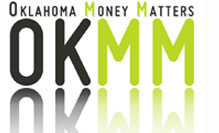Where Should I Save?
Page 5 of 13
We’ve all heard stories about people saving money in jars and burying them in the backyard. While keeping our money physically close might seem safe, it can quickly lead to disaster.
 Consider this tale of caution. In 2009, a woman lost $1 million when her daughter bought her a new mattress and threw the old one in the garbage. She kept her entire life savings inside the mattress and despite searching three separate garbage dumps, the money was gone. The woman told the press she saved the money in the mattress because she had “a traumatic experience with banks.”
Consider this tale of caution. In 2009, a woman lost $1 million when her daughter bought her a new mattress and threw the old one in the garbage. She kept her entire life savings inside the mattress and despite searching three separate garbage dumps, the money was gone. The woman told the press she saved the money in the mattress because she had “a traumatic experience with banks.”
This woman is not alone. Currently there are an estimated 40 million American households that are considered unbanked, meaning they don’t have accounts at secure financial institutions and often pay excessive fees for basic services, like check cashing.
Whether it’s a lack of trust or a lack of understanding that keeps people away from banks and credit unions, there’s no doubt that these are the best places for your money. Here’s why:
Safety.
Money kept at your home can be stolen by thieves, friends, family or neighbors. You could also lose your money in a disaster, like a flood, fire or tornado.
Security.
Most banks are insured by the Federal Deposit Insurance Corporation (FDIC), an independent agency created by Congress. The FDIC insures all bank deposits up to $250,000, which means that even if a bank fails, your money is insured up to that amount. If you choose a credit union, your money is also insured by the National Credit Union Association (NCUA) for up to $250,000.
Interest.
Saving your money in a jar at home can’t earn you free money. Keeping your funds in a bank means your money earns interest. That interest helps your money grow over time and is the key to building wealth.


